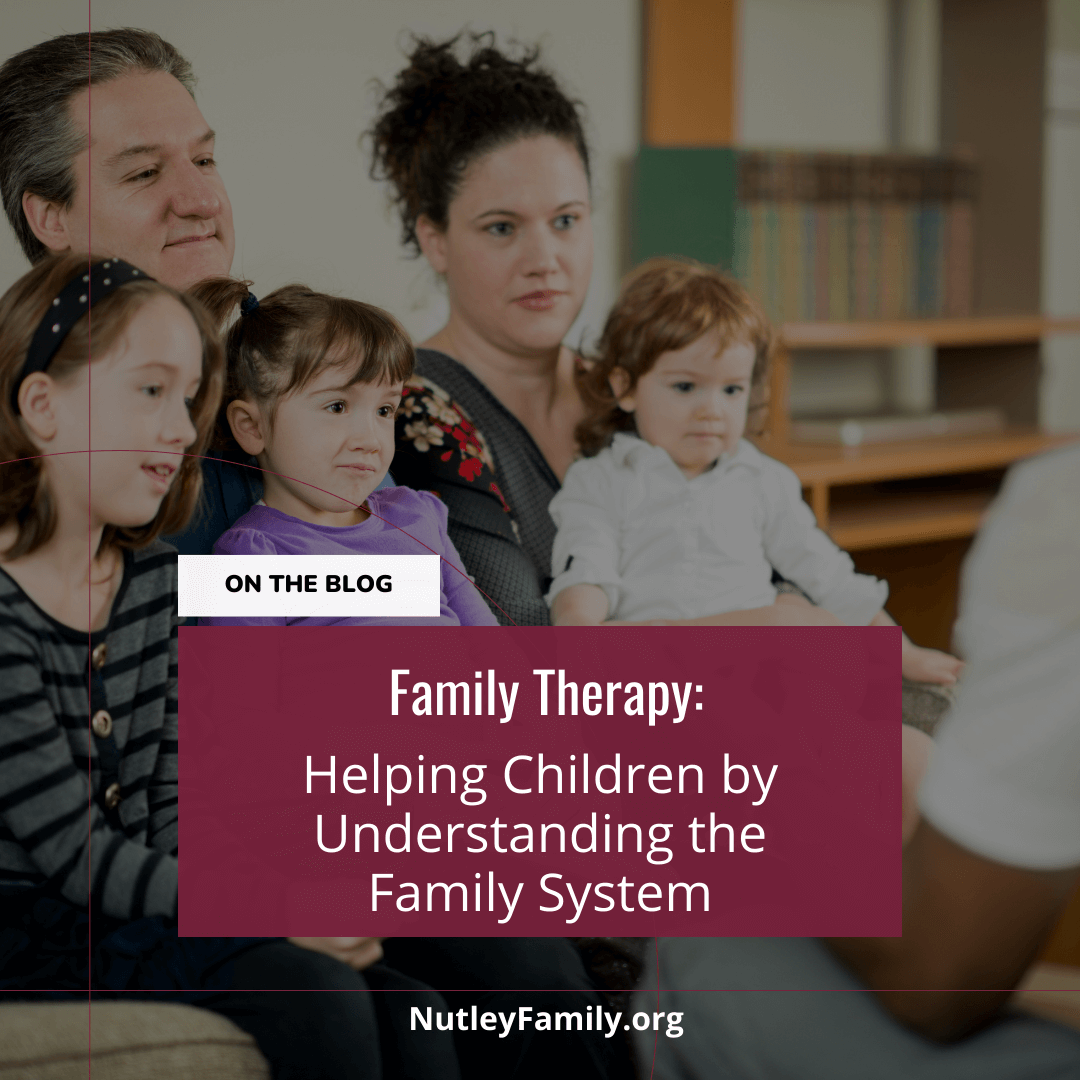-
Family Therapy: Helping Children by Understanding the Family System
- Posted on May 2, 2023
- by admin
- in All Articles, Mental Health, NFSB Blog
- Comments Off on Family Therapy: Helping Children by Understanding the Family System

Parents will often bring children to Nutley Family Service Bureau (NFSB) for counseling for a variety of reasons. Perhaps the child is having behavioral issues, seems depressed and isolated, or shows signs of an eating disorder.
The child is almost always living in a family system that needs to be assessed to gain a thorough and accurate understanding of that system. This allows the clinician to determine what can be done to better support the child and affect positive change.
Helping an Individual by Understanding the Family
“The basic premise of the family systems theory is that the individual is part of a larger system,” said Kristen Petullo, Master of Social Work (MSW), Licensed Clinical Social Worker (LCSW), and Clinical Supervisor at NFSB. “Our behaviors, belief systems, values, personality, and other traits are shaped by how we’re raised in the family system. We need to work within that system to create the changes that are needed.”
In many cases, family members want to help but don’t know how to support their loved one. For example, if a teenage girl is struggling with an eating disorder, parents want to help but aren’t sure what to do.
The first step may involve coaching the parents on how to support their daughter in the most effective way. This is often the entry point to family therapy, which will eventually include the teen.
“Family support is crucial in creating lasting change,” Kristen said. “We rarely work with children without working with their parents or caregivers. Any intervention we might incorporate with the child needs to be reinforced by the parents at home. Without that reinforcement, it’s much more difficult to make progress.”
Family therapy helps each member of the family express themselves in a way that’s healthy and productive. Better communication creates a deeper understanding of each individual’s perspective within the family system, which can then lead to increased trust, more effective problem-solving, and stronger relationships.
To be clear, not all therapy has to be family therapy. There are situations in which it makes more sense to focus on the individual. However, we’ve found that family therapy is often most effective, especially when a child is being affected.
The Bowen Family Systems Theory
While there are many family therapy models, the structural family therapy model used at NFSB is largely based on the Bowen Family Systems Theory. Developed by Dr. Murray Bowen, the Bowen Theory states that individuals and families function as one emotional unit. In other words, one individual’s behaviors and circumstances will typically have a positive or negative impact on other family members.
If one person is dealing with mental health challenges, especially if that person is a child, treatment focusing on that individual probably isn’t the best approach. According to the Bowen Theory, individuals are more easily understood, and can be supported more effectively, when viewed in the context of their family relationships and how they interact with each other.
“We were founded 110 years ago to protect and support children and families, and NFSB is a family support agency today,” Kristen said. “Structural family therapy informs our approach to mental health. We believe so strongly in this model because we’ve seen such positive results.”
If you or someone you know is going through a rough patch and you’re not sure what to do, please call 973-667-1884 or visit the mental health services page on the NFSB website for more information. Remember, you don’t have to face life’s challenges alone, and we’ll always respect your privacy.
If you enjoyed this article please consider sharing it!
Archives
- July 2024
- June 2024
- May 2024
- April 2024
- March 2024
- February 2024
- January 2024
- December 2023
- November 2023
- September 2023
- August 2023
- July 2023
- June 2023
- May 2023
- April 2023
- March 2023
- February 2023
- January 2023
- December 2022
- November 2022
- October 2022
- September 2022
- August 2022
- July 2022
- June 2022
- May 2022
- April 2022
- March 2022
- February 2022
- January 2022
- December 2021
- November 2021
- October 2021
- September 2021
- August 2021
- July 2021
- June 2021
- May 2021
- April 2021
- March 2021
- January 2021
- December 2020
- November 2020
- October 2020
- September 2020
- August 2020
- July 2020
- June 2020
- May 2020
- March 2020
- January 2020
- November 2019

















